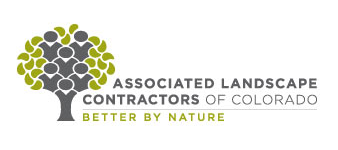| Landscape contractors: do you have your nursery license? |
 |
| Written by Colorado Green NOW |
| Tuesday, June 07, 2022 02:00 AM |
|
Landscape companies, as entities that sell (including resale), distribute, or advertise with the intent to sell or distribute nursery stock, must be licensed, and registered annually with the Colorado Department of Agriculture (CDA). CDA is reaching out to those who are not registered. According to the CDA: Companies that sell or distribute nursery stock for commercial purposes must register as a “nursery” with the CDA. All growing nurseries (including sod farms), retailers that sell nursery stock, landscape contractors, brokers, and collectors must register if selling or distributing nursery stock for commercial purposes. If you overseed or hydroseed, you will need a retail seed dealer license as well. According to Rich Guggenheim, Plant Health Certification Manager of the Division of Plant Industry, “Any contractor who is selling any seed, would need to have a retail seed license. This is like the big box store or small garden center that sells bags of turf seed or packages of vegetable and flower seed to customers. We will not differentiate under the Seed Act if the contractor applies the seed to commercial or residential sites. Anyone retailing seed, regardless of amount, needs a retail seed license.”Licensing for overseeding, hydroseeding or re-seeding does not require landscape contractors to acquire a commodity handlers license. However, seed licensing does require an inspection, which is done at random. Usually, an inspector comes out and inspects the seed bag for labeling requirements under the Colorado Seed Act. The inspector may also take samples to send to the CSU Seed lab to ensure the seed is free of weeds, matches the purity standards, germinates according to the label statement and is not expired. “This is a benefit for seed retailers, in this case contractors, because often when we get an arbitration request of complaint, we can show the lab results and that ends the dispute right there,” states Guggenheim. He continues, “If they are not in compliance, we stop selling the seed until it is compliant. This is a protection for those retailing the seed. If the contractor pays for something, they want to be sure that is what they are getting, right?” According to Guggenheim, getting what was paid for is part of the protection under the act and the regulatory testing. “Most importantly,” he says, “testing protects the environment. It helps ensure that noxious weeds are not being sown. The detection of weed seed can prevent them from getting out and damaging ecosystems. It can also help prevent costly eradication and bad press for the business that applied the seed. For more information, visit https://ag.colorado.gov/plants/nursery, and click on “Nursery program registration” or email at [email protected] Read more in this issue of Colorado Green Now: |


